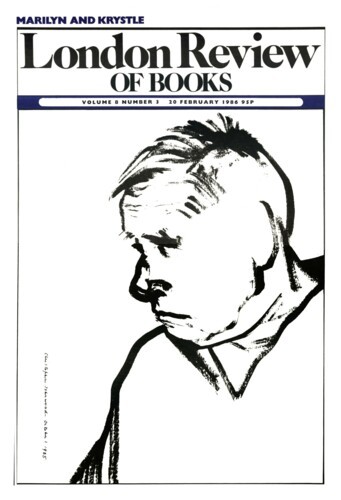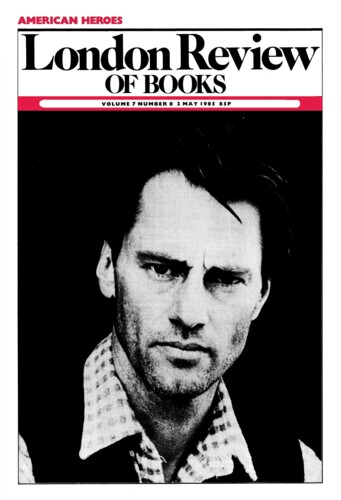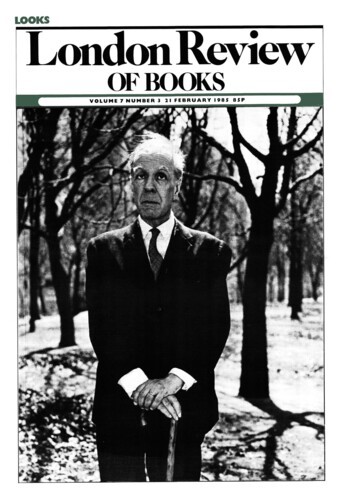Being on top
John Ryle, 20 February 1986
What is more important: is it the project of understanding why sexual desire is, or has become, a problem for us like no other, fraught with particular anxiety and special perplexity; or is it the task of establishing – maintaining, perhaps – principles according to which this desire can be regulated, guided, temporised? The change in relations between the sexes and the concomitant change in relations between members of the same sex, the double alteration that has come over us in the last two or three generations makes a certain kind of intellectual investigation possible for the first time. The impure hush has ended; the tongues of desire have been freed. Texts that were formerly read selectively, through a haze of anxiety, or feverishly perused for the legitimation of proscribed longings have at length entered ordinary scholarly discourse.



